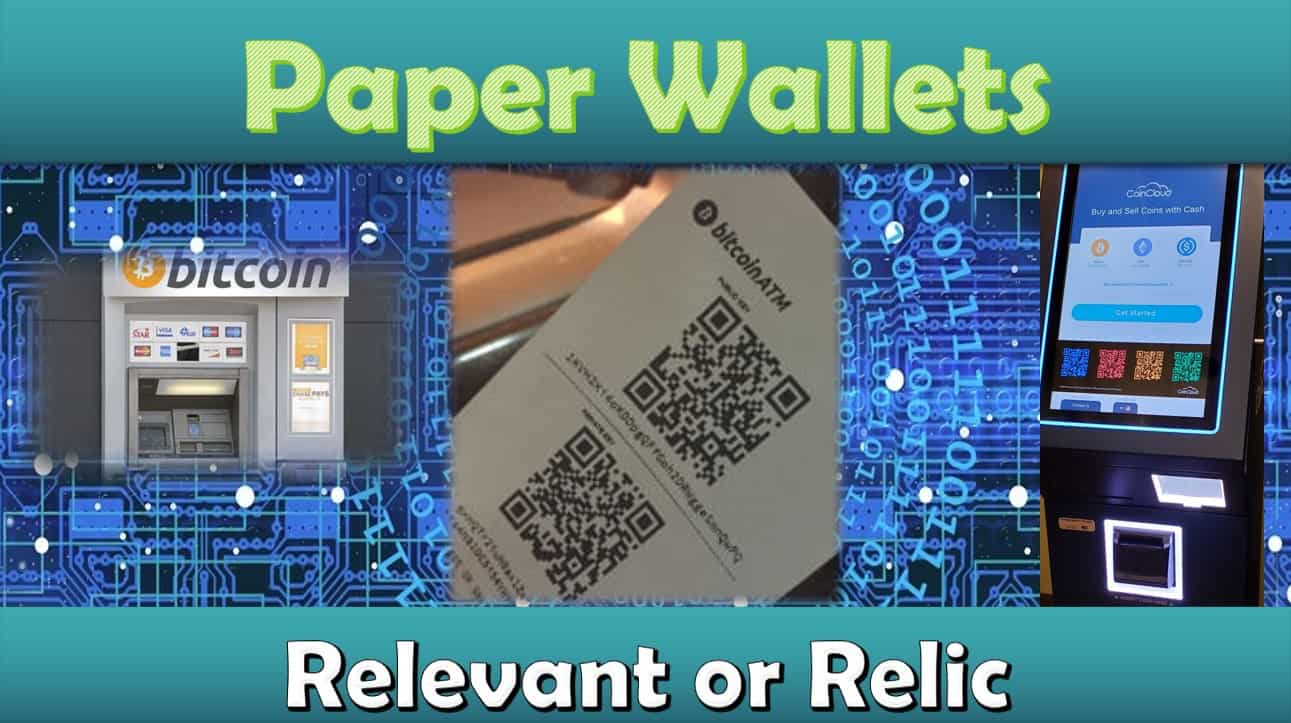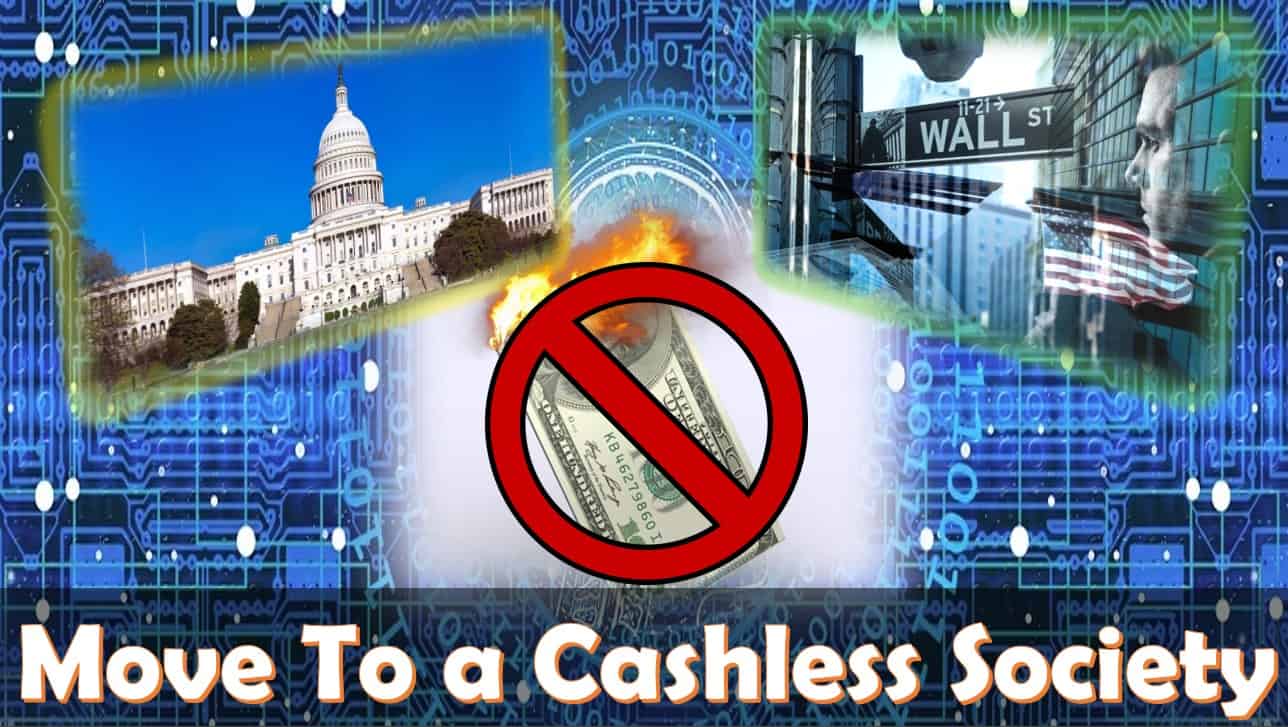
Adapting To Change: The Move To a Cashless Society
As cash slowly becomes a thing of the past, it’s time to take a look at the digital revolution happening before our eyes. From digital payments to cryptocurrency, these are just some of the financial changes that have been transforming our lives over the last few years.
Let’s explore what it means for us to be living in a cashless society and delve into some of the impact it has on everyday life, and what potential implications could arise in the future.
Exploring The Cashless Revolution
- What is a Cashless Society?
- Shifting to a Cashless Society
- Impact of a Cashless Society
- Cashless Advantages & Disadvantages
- Advantages of a Cashless Society
- Disadvantages of a Cashless Society
- Crypto’s Role in a Cashless Society
- Adapting To a Cashless Society
- Cashless Society Conclusion
- Frequently Asked Questions (FAQ)
Disclaimer: While I always attempt to provide the best and most current information possible on any topic, without bias, there are times that I do lean in a particular direction. Given my propensity for cryptocurrency, I lean toward personal privacy and freedom. So, be sure to use this as a stepping off point to DYOR and develop your own opinions and understandings about the subjects discussed below.
What is a Cashless Society?
If you’re over the age of 30, it’s almost impossible to imagine a world without having cash as a payment option.
But there is one undeniable fact, the world as a whole, is definitely moving in a cashless direction.
Some would argue that we, as a society, are being ‘nudged’ by the banks, governments, Non-Governmental Organizations (NGO) and even some companies in this direction. By limiting cash options, ATM access and so on, eventually we “choose” to pay with something other than cash.
Regardless if this theory is true or not, those who support completely cashless transactions envision a world where paper money and coins no longer exist.
Instead of exchanging bills and coins for goods and services, people use digital payment methods such as debit cards, credit cards, mobile wallets, cryptocurrencies, or apps like Apple Pay or Google Pay.
With this shift to an increasingly cashless economy, our purchasing power is no longer limited to physical money, but rather an ever-increasing variety of digital payment options.
While this may seem to be a bit of hyperbole, consider that the U.S. Dollar is being debased on a daily basis, and the amount of goods and services you can effectively purchase just keeps decreasing.
Contrast that with the ever increasing purchasing power of those using Bitcoin.
Even though the world we live in today is not completely cashless, it is easy to realize that this type of system would rely heavily on computer networks and encryption to store and protect the data associated with financial transactions.
As these systems continue to be built out, blockchain technology will no doubt be the distributed ledger that is used. Whether that is a public or private blockchain will obviously depend if the currency being used is centralized or decentralized.
If this is the first time you are hearing about blockchain technology, take a minute to read about it here.
The other important aspect of these networks will be security. While network security measures improve all the time, the same can not be said for the average person. Most people are woefully lax when it comes to their personal security online.
Give yourself an online security a check-up here with this post.
If you think there is no need to worry about your online privacy and security, consider that a cashless society means that governments and Central Banks will issue a Central Bank Digital Currency (CBDC).
With this CBDC, all transactions will be tracked. At the very least, this will completely obliterate your personal privacy… at the worst, it will be used to control your behavior.
But not to worry… according to proponents of this type of system, the positives out way these negatives.
What are these positives?
Proponents contend that there would be fewer cases of theft or fraud since all transactions are digitally recorded and tracked.
Moreover, payment processing times will also be significantly reduced because digital payments can be completed in seconds. Whereas currently, with physical money, it may take days or weeks before the funds are available.
While the ramifications of moving to a cashless system are many, and quite frankly, unable to be completely foreseen, let’s attempt to do so as we delve a bit more into some of these challenges.
Shifting to a Cashless Society
Whether we like it or not, we’re officially in the midst of a digital revolution, and it’s changing the way we transact and interact with one another.
From cryptocurrency to digital payments, over the coming decades we can say goodbye to cash.
All joking aside, this shift will undoubtedly bring both opportunities and challenges.
So, let’s take a look at some of the trends during recent years.
Trends in Digital Payments
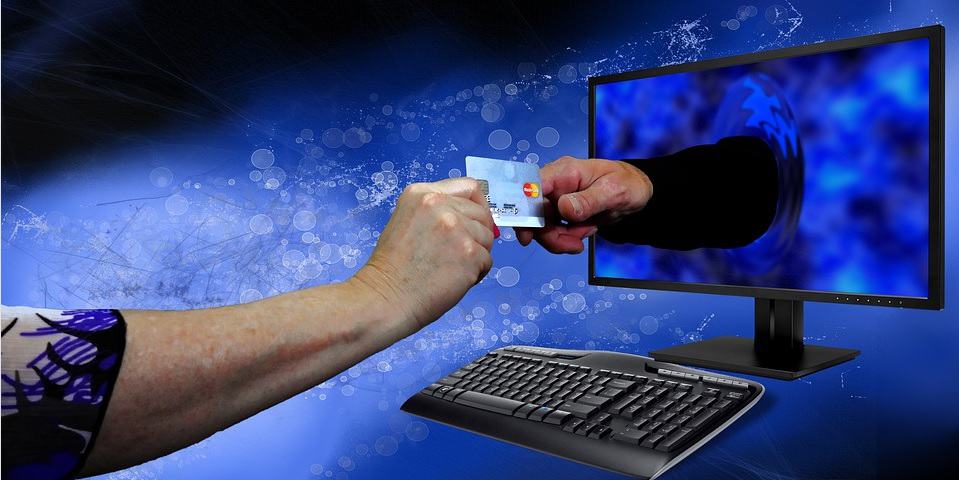
It’s no surprise that digital payments have taken center stage, from Apple Pay to Zelle, it appears that almost everything is going digital these days.
With more and more people preferring the convenience of electronic transactions, it won’t be long until we’re relying entirely on digital payments for our day-to-day needs.
The trend towards digital payments is quite evident in the statistics, too.
According to a recent report from Juniper Research, global consumer spending on digital payments reached $2 Trillion in 2019 and is expected to reach over $3 Trillion by 2024.
What’s more, the number of contactless card transactions are projected to grow by 20% this year, given companies like PayPal are also promoting the shift to digital payments.
For example, their launch of their “Pay in 4” service which allows customers to pay over four installments without any fees or interest.
In 2018, the global value of all cashless payments totaled $45 Trillion, with North America accounting for 28% and Europe accounting for 25%.
This trend has been most prevalent in countries such as China, Sweden, India, and the UK which are taking proactive steps to shift away from physical money and toward digital approaches. Specifically:
–> China is leading the charge towards a cashless society with digital payments estimated to have increase by 18% annually between 2018 and 2022. Since their issuance of a CBDC, citizens continue to look for cryptocurrency alternatives.
–> Sweden is also rapidly moving towards digitization with only 13% of all transactions made with physical money in 2017 compared to 40% five years prior. Payment processing apps like Swish are widely used and the country continues its move to issue a CBDC.
–> India has aggressively pushed its citizens towards using electronic means of payment since demonetization, resulting in an increase of 571% year on year growth in volume of ePayments and its citizens flocking toward crypto alternatives.
–> The UK has seen a decrease in both ATM withdrawals and banknotes issued. And the UK is not the most crypto friendly place in the world.
Finally, the growth of cryptocurrencies like Bitcoin has also been a driving force behind digital payments. With increasing acceptance and recognition from governments, businesses, and consumers alike, the future of cryptocurrency looks bright indeed.
All in all, it’s clear that the trend towards digital payments is here to stay and that it won’t be slowing down anytime soon. Whether you’re a fan of these new methods or not, there’s no denying the convenience they provide and their potential to revolutionize global payment infrastructure.
But there is more to this digital movement than convenience. Proponents say that there are inherent problems with cash that these digital solutions correct.

Perceived Problems With Cash
Most of the arguments against cash come from governments, banks and organizations like the World Economic Forum (WEF).
The fact that these groups are the ones most vehemently fighting against cash should give you pause at the very least, and make you ask… why?
Let’s start with the most common reason, they argue that cash is used to fund terrorism.
While this may currently be true in large part, let’s be honest, this is not the only option for funding these illegal activities.
Furthermore, they will contend that cash is easily lost or stolen, so being cashless will reduce theft.
Additional government assertions include that people use cash to evade paying their fair share of taxes. According to government officials, they are missing out on billions of dollars in revenue due to the lack of accountability associated with cash payments.
But it isn’t just the governments that decry the use of cash… banks, too, have their own issues with cash.
They suggest that it can be difficult and costly to manage and store large amounts of cash. Even though banks use fractional reserve banking… and since Covid, those reserve requirements were reduced to zero.
For those that accept these issues, as well as the others touted by banks and governments at face value, they are most likely convinced that digital payments are the way forward.
Whether or not you agree with these perceived issues with cash, the fact remains that having a society void of cash as a payment option will have a profound influence on the world as a whole.
Impact of a Cashless Society
I know that I’m just some guy who knows a little something about cryptocurrency… and there are certainly more qualified financial gurus who can speak more eloquently about economic issues… but when it comes to this war on cash I say, the ultimate impact of this transition will be tectonic in nature!
Afterall, a cashless society would be a major shift from centuries of human history and interaction, and it will likely have an interesting impact on our lives and the way we perceive money.
One obvious effect is that transactions will move faster than ever before thanks to the speed of digital payment systems.
Using crypto payment rails, underpinned by projects like Ripple (XRP) and Stellar (XLM), many businesses will be able to process payments in seconds rather than days, saving valuable time and money in fees.
For consumers who don’t already utilize a money tracking app, perhaps a more interesting possible impact will be understanding their day-to-day spending and saving habits.
Digital payments allow consumers to have greater access to data about their spending habits and budgets, making it easier to save money or plan out future purchases.
Finally, utilizing certain digital payments will lead to the end of personal privacy as we know it. With a CBDC, it will not only be possible to track every transaction, but program the currency.
This can then be used to control a person’s behavior.
For example, people could have limited use of their money if they don’t support certain political leanings, or you could be restricted from buying certain items, or prevented from saving money instead of stimulating the economy by spending… the programming possibilities are literally endless!
At the end of the day, having a completely digital, completely trackable, completely programmable currency, can produce an Orwellian nightmare.
Because this is such a departure from the current financial system, we should take a moment to discuss the effects on the current banking system.
Impact on Banking and Finance
The traditional banking system, with its hordes of bankers and financial wizards, is likely to be disrupted in a big way if society moves away from cash payments.
After all, what’s the point of having an army of bankers scattered throughout an endless amount of bank branches when you can just tap your phone for payment?
But even more than just the bank personnel, the banking system itself could be replaced entirely.
Banks have long relied on lending out deposited money to make a profit, but in a cashless society, these regional banks would have no reason to exist. A consumer could have an account directly with The Fed to conduct transactions thanks to a mandated Digital ID (DiD).
Additionally, with the rise of Decentralized Finance (DeFi) borrowers can get access to capital without having to go through a bank. This could have huge implications for the traditional banking system and its role in the global economy.
Even more significant is that digital payments allow people to store their money in a variety of different currencies, thereby opening up opportunities for international trade and investment. While this is already happening to some extent, it could be accelerated in a cashless society where everyone has access to digital payments.
The bottom line is that this transition will have sweeping implications for banking and finance as we know it today. But they will not be the only sectors affected.
Impact on Businesses
We deal with different businesses every day, and without a doubt, no matter the business size or model, the effect on business will be profound.
For starters, it’s likely that banks will no longer be the primary players in lending out money or collecting payments from customers, this is especially true for local banks and businesses.
This will likely lead businesses to access capital through digital financing options such as DeFi, or in the case of CBDCs, borrow directly from The Fed. This could spell the end for the local mom & pop business.
The flip side of this coin for businesses in general means companies can take advantage of more efficient payment processing options. This will allow them to access money faster and with fewer fees.
Finally, having cashless transactions will open up new market opportunities for businesses. It could increase their global reach, having access to customers in countries that may not have access to traditional banking services.
Overall, the move towards transactions without cash will certainly be a dramatic shift for businesses around the world. So, let’s break down all of the pros & cons for all of us.
Cashless Advantages & Disadvantages
| Advantage | Disadvantage |
|---|---|
| Convenience | Loss of Privacy |
| Fraud & Theft Reduction | Financial Exclusion of Unbanked or Underbanked |
| Inability To Evade Taxes | Hacking & Data Breaches |
| More Sanitary Than Cash | Illegal Seizure |
| Reduced Costs to Banks | Imposition of Negative Interest Rates |
| Programmability of CBDC | |
| Unrecognized Increase Spending Potential | |
| System Malfunctions | |
| Increased Processing Fees | |
| Government Ability to Impose Monetary Policy |
Advantages of a Cashless Society
As you can see from the table above, the list of advantages heavily leans in favor of banks, governments and NGOs.
I don’t know about you, but I’m more concerned about what benefits me, my family and my friends. I’m concerned about the things that give us, the individual, more autonomy.
This ideology is what permeates the table and my outline of the top two items in each category that I will discuss below.
Cashless Convenience
Functioning in a cashless society can certainly offer a lot of convenience for the average person.
There would be no more worrying about carrying around enough cash, or having to go to an ATM and pay fees to get money out.
Playing off the current system, you can easily make purchases with your debit or credit card, and if you have mobile wallets such as Apple Pay or Google Pay, you can even make purchases with your phone.
The convenience factor continues with budgeting. It’s a lot easier to keep track of spending when everything is done digitally.
No more worrying about where the money went and how much was spent. With the click of a button you can easily access your financial records and view your transaction history.
For those concerned about the unsanitary nature of money, digital provides the convenience and comfort knowing that you’re not being exposed to any nasty germs.
But going digital also provides other conveniences, like a certain peace of mind.
Fraud & Theft Reduction
While some would argue that this could potentially be a con because it supports banks and businesses, I contend that it can also help bolster consumer confidence.
Digital currency would certainly make fraud and theft a much less likely occurrence.
Without physical currency, thefts for example, would become much more complicated.
As for fraud, it would likely be reduced dramatically as transactions would be trackable, helping the consumer feel more assured when transacting business.
Also, keep in mind that these payments would be digital in nature and thus require a lot more information than physical cash. Every transaction will be associated with an account number or other unique identifier like a DiD.
For the average consumer, there is a certain feeling of security that comes with knowing the banks and law enforcement are better equipped to track down thieves and fraudsters.
However, this security does come at a price… your privacy!
Let’s take a look at the top two cons to this digital utopia.
Disadvantages of a Cashless Society
While I would agree that the digitization of currency is a convenience to many, there is always another side to every coin.
Again, looking at this from the perspective of Central Banks, governments and NGOs, this is the perfect means to surveil and control.
For this reason governments have, and will continue to issue CBDCs and demand their use from their citizenry.
This leads us to the primary disadvantage of a centralized digital currency, a complete loss of privacy.
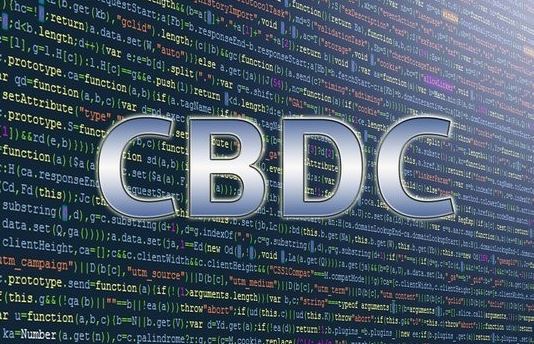
Loss of Privacy
The biggest downside of going cashless is the loss of privacy that comes with it.
When you’re transacting business in the digital world, all your purchases and activities will be stored somewhere. And if governments have their way, this will be on servers or systems owned and controlled by banks and other financial institutions.
This creates a situation where your every move can be tracked. Not only by banks, but also by the government, who tend to view digital transactions as a source of revenue… and currently, as in the case of China, a means of control.
Keep in mind that these CBDCs will be programmable. So, there can be any restrictions placed on its use at any time.
If the government wants to spur economic growth, any CBDC in savings can be made to return to the bank if unused, or receive a negative interest rate.
CBDCs could be programmed to only be used at certain stores. Thus the government could literally pick winning and losing business. Can you say crush small businesses.
The government can decide what you can spend a CBDC on.
Climate change still a problem… no problem… press a button and you can’t buy meat.
Pesky Second Amendment still an issue… who cares… press a button and you can’t spend your CBDC on guns or ammo.
Those abilities of a CBDC are just the tip of the iceberg. If the government controls the money, they can control us.
So, while a cashless society has its advantages, it also comes with some heavy disadvantages that need to be taken into consideration before making the leap.
Let’s take a look at the next potential issue with a centralized digital currency.
Financial Exclusion
Whether you realize it or not, the current banking system is a permissioned system… because you need to ask permission to be a part of it.
You go to your local bank, tell them you want to open an account, they tell you the requirements, make you verify your identity, and all is good.
That is until you try to send too much money somewhere, or you try to send money to a relative in a restricted country, or even move your money from one bank to another.
We’ve all experienced it, the litany of questions… and at the end of the day, the bank can always say NO.
Your bank’s Compliance Department can override and prevent any transaction in its system, and they don’t even have to tell you why.
Financial exclusion can become an issue for those who don’t have access to traditional banking services. This can be especially worrisome for people in lower-income brackets as they may not have the necessary proof of identification or other documents required to open a bank account, leaving them unable to use digital payment platforms.
According to the World Bank, there are approximately 1.4 Billion people across the globe who are unbanked.
Frankly, they use this statistic as a reason to deploy a CBDC because it will help these people… but the sad truth is that the exclusion will continue and likely at a higher rate… because the same people still control the system!
This could create an even bigger rift between the haves and the have nots in society.
The ramifications of this are many, but initially this could lead to an increase in crime as individuals without access to digital payments may be forced to resort to criminal activities such as theft or fraud, just to make ends meet.
Ultimately, it is important for governments and private entities alike to strive for balance in this cashless society. They should be offering solutions and assistance to those who are unable to access digital payment platforms
The question is, will they?
These issues are spawned by taking our current system and digitizing it. While I agree that we, as a society, are moving in a cashless direction, perhaps people need to consider a decentralized option.
Crypto’s Role in a Cashless Society
Let me start out by saying that I believe cryptocurrency has a major role to play in this digital society that is steaming toward us.
Why?
Because cryptocurrency is the complete antithesis of the CBDC.
To start, cryptocurrency is decentralized. This means that no one person or entity controls it.
As such, by its nature, it is code… so it functions the same no matter what country you’re in or how much money you have.
Generally speaking, this code can not be changed.
For example, there will only be 21 Million Bitcoin mined into existence… unlike USD, whose supply can and has been increased with impunity.
Furthermore, the fact that cryptocurrency is decentralized also allows for ANYONE to use it and to send or receive it WITHOUT PERMISSION.
I will concede that as of the writing of this, there remain sections of the world where the infrastructure does not exist to allow for everyone to access the crypto networks. However, there are strides being made in this direction on a daily basis.
The infrastructure is being built to allow those people access via a cell phone.
Why?
Because most people in the world have access to a mobile phone.
Take a minute to watch this video. It is one I created years ago where I outline my thoughts about how smartphones will help usher in this revolution.
Cryptocurrency has the potential to revolutionize the way people use money thanks to its decentralized and secure design. Its underlying technology allows for near-instantaneous transaction processing, allowing for faster and smoother transactions.
Crypto also has the potential to revolutionize how people save and invest their money. As we are seeing in the latest banking crisis, cryptocurrency can be used as a “store-of-value” that can be held indefinitely with no risk of devaluation or confiscation by governments or banks.
This means investors can safely store their money and hold it for long-term capital gains, while still having the flexibility to buy and sell on a whim.
Another advantage of cryptocurrency is its ability to facilitate cross-border transactions with much lower transactional costs compared to traditional financial systems. People living in different countries can instantly transfer money without having to worry about complicated exchange rates and middlemen.
Cryptocurrency will undoubtedly play a critical role in the future of cashless transactions. As more people become comfortable with using cryptocurrency, more businesses will likely start to accept it as a form of payment.
Technology will continue to evolve, and there is no doubt that cryptocurrency will help shape the future of digital money.
If you are thinking the time has come to invest in crypto, but you don’t know where to start, read about the beginner portfolio.
But, with all of these coming alternatives, there will undoubtedly be the need to learn new ways of doing things, let’s discuss some potential adjustments.
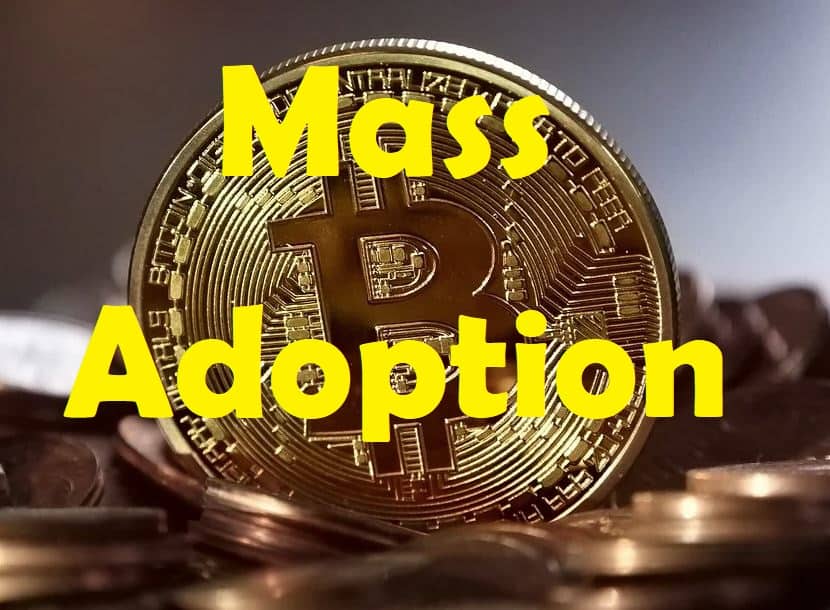
Adapting To a Cashless Society
While adapting to a cashless economy will obviously have a bit of a learning curve, it doesn’t have to be complicated.
Sure, it can seem daunting at first, but once you get the hang of it, you’ll find that cashless transactions are faster and easier than ever before.
One of the biggest changes is the use of a digital wallet.
It may take some time for people to wrap their heads around a digital wallet being a bit like an online bank account where you store your CBDC or cryptocurrency.
Furthermore, people will need to understand that they are their own bank, especially if they utilize crypto.
As such, they will need to gain a certain comfort level with securely storing and quickly transferring their money with no need or help from a third-party intermediary such as a bank or credit card company.
However, once most people are comfortable with using cryptocurrency and a crypto wallet, the sky’s the limit!
It will allow for increased global trade, seamless monetary transfer and increased options for businesses of all sizes.
Need more information about cryptocurrency wallets?
There is a lot to learn, you can start out here.
Cashless Society Conclusion
Let’s bring this all together… it is undeniable that the world is moving in the direction of cashless transactions. Surveys have shown that less and less people actual pay for goods and services with cash.
The question is, what type of cashless system will exist in the future?
There are two alternatives, either a centralized or decentralized system.
The centralized system will be a CBDC issued and controlled by government entities.
The decentralized system will be the utilization of cryptocurrency.
The centralized system is one that will likely do more harm than good. It will be a means of surveillance and control for any and all who use it.
The decentralized system will give users complete control over their assets, and if desired, allow for complete privacy of transactions. Ultimately allowing for freedom and autonomy.
Either way, there will be a learning curve in order to utilize the system. The global community will have to become familiar with the use of digital wallets and the need for protecting their online data.
Frequently Asked Questions (FAQ)
Q: What is a cashless society?
A: A cashless society is one in which people no longer use physical money or paper currency but instead rely on digital methods of payment. This could include using credit cards, mobile payments, cryptocurrency, or other forms of digital currencies.
Q: How do I get started with a cashless society?
A: To get started in a cashless society, you’ll need to become comfortable with utilizing digital payment methods. This may involve getting a credit card or setting up a digital wallet. You can also explore investing in cryptocurrency if you’re so inclined.
Q: Is a cashless society beneficial?
A: A cashless society has the potential to be incredibly beneficial. Without the need for physical money, it can help reduce crime and increase efficiency in everyday transactions. It also allows people access to financial services who may not have had them before.
Q: Are there any drawbacks to going cashless?
A: Yes, there are some drawbacks to going completely digital. It requires people to be comfortable with technology and data security. Additionally, it could limit financial access for those without means or technological know-how. Finally, it can increase surveillance and control of individuals by the government if left unchecked.
Q: Are cashless transactions inevitable?
A: It certainly seems like it. With more and more businesses and people shifting to digital payments, cash is becoming less and less necessary. As technology continues to evolve, it’s likely that we’ll see even more countries moving towards a cashless economy.
Disclaimer
The information provided here is for INFORMATIONAL & EDUCATIONAL PURPOSES ONLY!
View our complete disclaimer on our Disclaimer Page



